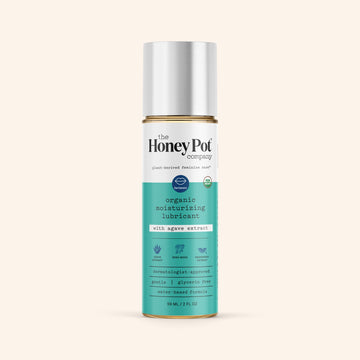The cultural significance of skin dryness can have historical roots and connections, as beauty standards and skincare practices vary across different people. There are many stories of grandmothers claiming that petroleum jelly, cocoa butter, aloe vera or even baby oil are the best ways to moisturize skin that tends to be on the dryer side. There is often a greater emphasis on cleansing and hydrating the skin, based on rituals passed down from generation to generation. Even today, cultural significance can manifest in the use of specific skincare practices tailored to promote skin health.
In many cultures, healthy skin is often associated with beauty and well-being. Dry skin, which can appear ashy or dull, might be seen as less desirable or an indication of poor health. This can influence individuals to seek remedies or products that enhance skin moisture and texture. Rituals differ widely across cultures based on environment, understanding of skin health, and how dryness appears on the skin.
How your environment can impact skin dryness
Humans living in dry, cold climates may experience dryness more than those living in warm/humid conditions. Living in an area where there are many seasons may necessitate a change in skin care products as the seasons change, especially in colder months.
The tap water in your region can significantly impact your skin as well, as there are naturally occurring sources. Hard water, which contains higher levels of minerals like calcium and magnesium, can strip the skin of its natural oils and moisture, leading to dryness and potential irritation. In regions where hard water is present, individuals may need to take extra precautions to keep their skin hydrated and balanced. Many opt for filters that can be attached to the showerhead or pipe to filter out excess minerals.
Hard water can affect the skin by creating a barrier that makes it harder for moisture to penetrate the skin, leading to dryness and potential skin conditions like eczema or dermatitis. It can also cause a buildup of minerals on the skin, further contributing to dryness and potential irritation.
Dry skin awareness and education
Community and familial education often shape the approach to skincare. For instance, learned routines from family members are common, carrying forward traditional skincare wisdom through generations.
There might be varying levels of awareness about skin conditions like eczema or psoriasis, which can cause dry skin. In some cultures, there might be less knowledge about these conditions, leading to mismanagement, misdiagnoses, or stigma around visible skin issues.
In my clinic, darker-skinned humans were often taught to moisturize by someone in their family and do not prefer dry skin. Whereas humans of European descent often do not moisturize and do not see it as an important part of their body care routine. This may be due to lack of education from their elders and their lower incidence of eczema and dryness in their communities. This does not mean they do not have dry skin; they absolutely do! They just do not find it essential to moisturize. I often advise my patients, who do not identify as people of color, that moisturizing can ease a simple rash.
Dry skin may look different for some
Humans with darker skin are more prone to dryness and eczema because they naturally lose more water from the skin. This is called TEWL (trans-epidermal water loss), and it is found in higher levels in humans of African descent than other European humans. Humans with more melanated skin are also known to have lower lipid (fat) content in the outermost layer of the skin called the stratum corneum.
Skin dryness can appear differently for everyone. Dry skin may show the typical white or grayish flakiness and may also appear as:
- Dull, ashy, or grayish in appearance due to the buildup of dead and dry skin cells
- Rough texture, feeling coarse or bumpy to the touch
- Patches that might look darker or irritated compared to the surrounding skin
Recommendations for dry skin include:
- Hydrating Cleansers: Use hydrating and gentle cleansers such as The Honey Pot Co’s Hydrating Body Cleansers.
- Applying moisturizers: Moisturizing creams and ointments are better than thin lotions and oils for dry skin. Look for ingredients such as ceramides, glycerin, and/or colloidal oatmeal.
- Avoiding hot showers or baths: hot water can further dry out the skin.
- Use a Water Softener or filter: Installing a water softener or filter in your home can help reduce the mineral content in your water, making it gentler on your skin.
- Use Sunscreen: Dry skin can be more sensitive to sun damage, so using sunscreen is crucial to prevent further skin issues.
Remember that everyone's skin is unique, so it may take some trial and error to find the right routine that works best for your skin in a hard water environment. If you experience persistent skin issues, consider consulting a dermatologist for personalized recommendations.
For more information about skin health or to find a culturally responsive healthcare provider, visit our partner Health in Her HUE. Health in Her HUE is a digital network of culturally sensitive healthcare providers, evidence-based health content, and community support.





